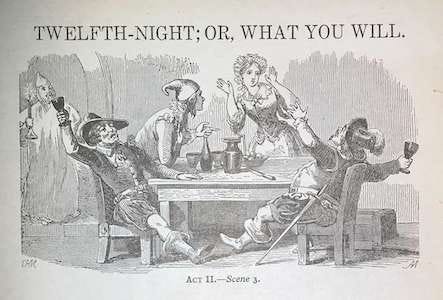He who should hurt the wren
shall never be beloved by men.
(William Blake, Auguries of Innocence c. 1803)
I’m not sure what sparked my curiosity about the wren this week. I think a mention on Twitter via the #folklore threads for New Year.
Turns out, they are marvellous birds. Tiny but mighty, and as Stephen Moss writes in ‘The Wren: a Biography’, they are “a paradox” (Vintage 2018).
The wren is Britain’s most common bird, weighing the equivalent of two A4 sheets of paper. Yet, you’ll find that most of us aren’t even sure if we’ve seen one.
They are everywhere — but nowhere.
It’s perhaps this, along with their size and soulful song (they have the loudest birdsong in proportion to size and can carry two notes simultaneously), that has made them ubiquitous in folklore.
I read the fable, ‘The Eagle and the Wren’, which seemed fitting after watching Andrew Tate — the toxic farce — meltdown on Twitter in December following a spectacular public tweet-burning by the unflappable Greta Thunberg.
“yes, please do enlighten me. email me at smalldickenergy@getalife.com” (Greta Thunberg, Twitter)
Her tweet has quickly gained traction to become one of the top tweets of all time, with over three million likes.
“She (Greta) burned the macho guy to a crisp in nine words” (Rebecca Solnit)
With that in mind, I wrote my own version of the folk tale, inspired by Greta, and created a charcoal study of a little wren (filmed in my studio).
The Eagle and the Wren (inspired by Greta Thunberg)
Many years ago, birds from all across the world gathered together to decide who would be crowned King.
After much chatter, the wise owl suggested a competition to see who could fly the highest, “whoever wins is named King” he hooted.
The Eagle puffed his chest and guffawed, “stand back; I’ve got this. No bird is stronger or can fly higher than me”.
Amused, the plucky little wren whispered under her breath, “the owl thinks he’s wise, but I know better.”
With a sharp, powerful flap of his wings, the eagle launched high into the sky. The other birds gasped in wonderment, “look at his impressive wings”.
Distracted by the eagle’s showy turbo power, the other birds had failed to see the little wren also take off with hasty, efficient force.
When the eagle kicked up a gear, the wren climbed onto his back, keeping hidden by feathers and muscle.
“Be patient”, she told herself.
The eagle climbed higher and higher, swooping and soaring. He cawed triumphantly, “no one can catch me; I will be king!”.
The birds below, lined up like ants, ready to welcome him back with royal pomp.
Suddenly, as he was about to begin his conquering descent, the eagle felt a tiny flutter on his back. It was the wren.
Full of energy and confidence, she hurled herself toward the sun — far higher than the eagle.
Up and up, like a bullet, darting with delight at her canny plan, “I am King, I am King!” she sang.
Furious, the eagle tried to catch her, to climb higher, but he was too exhausted from his power display.
Down he went, crashing to the ground. “She’s done it; the wren has won!” the birds tweeted.
When the wren landed safely to join the others, the eagle spat, “you only won through trickery and cunning, and that’s not fair”.
“And you would have won through strength and brawn. Why is that better than cunning?” she quipped.
The eagle was incensed — bested by brains.
And with that, the plucky, cunning little wren was crowned King of birds.
(written and edited by Kat Healy, Jan 2023)
Twelfth Night
It was around 1601-2 when Shakespeare wrote his play ‘Twelfth Night’ to celebrate the end of the twelve days of Christmas celebrations. A funny but heartbreaking tale of unrequited love steeped in dramatic irony with classic themes of identity, love and deception.
In the spirit of Greta Thunberg and using our voice as an act of power against toxic behaviour on and offline, I’ll leave you with this quote from Feste the Jester, who “may be the most fully portrayed and most-agile minded of all Shakespearean clowns.”1
Foolery, sir, does walk about the orb like the sun, it shines everywhere.
(Feste, Act 3 Scene 1 — Twelfth Night)
What I’m up to this week
CREATING: A new song for digital release (March 2023). Mid-pandemic, I recorded a duet with my talented friend and singer-songwriter, Djana Gabrielle. For obvious reasons, I wanted to wait to release it in a positive context. The best part? I sang en français. It was a fun collaboration with Djana, and I look forward to sharing it with you soon.
READING: Hagitude by
, The Secret History by Donna TarttLISTENING: Bible John podcast by Audrey Gillan on BBC, The Tavistock by Polly Curtis for Tortoise
Stefan Daniel Keller, The Development of Shakespeare's Rhetoric: A Study of Nine Plays, Francke Verlag, 2009







Watching the video was fascinating, I'd no idea how many times you could re-visit each part (and smear the charcoal around) without losing the definition of the subject. Seeing how the different layers were built up and what they each contributed was an education too. I mean, how many times did you return to the eye and add more to it?
The music worked well with the video, what was the piece?